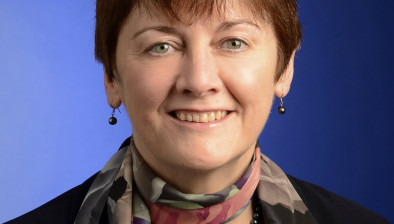Neurodiverse talent ‘could be construction’s productivity edge’

Professor Adam Boddison OBE, chief executive of APM
Neurodivergent staff could help businesses become more successful if the right steps are taken to make workplaces more inclusive, new research has found.
Research by the Association for Project Management (APM), the chartered membership organisation for the project profession, has identified that people with neurodevelopmental conditions – such as ADHD, dyslexia, and autism spectrum disorder – could bring unique insights and talents to many organisations and projects, if they were better supported to do so.
APM commissioned the recently published ‘Promoting Neurodiversity Report’ to assess how well the industry is integrating neurodivergent people, and what more needs to be done. The report states that neurodivergent individuals sometimes have strengths and abilities that can support project success, including better pattern recognition, risk management, adaptability, and more.
However, it also found that these individuals face barriers to employment, such as finding difficulties with the traditional interview process, or facing sensory overload in a busy office environment.
It concludes that more needs to be done to ensure neurodivergent individuals have as much chance to succeed as their neurotypical colleagues.
APM listed seven recommendations that companies can adopt:
• Promoting neurodiversity awareness and training
• Enhancing disclosure processes
• Implementing reasonable adjustments and flexible policies
• Reassessing recruitment and training practices
• Fostering supportive networks
• Redesigning workspaces and meeting environments
• Focusing on strength-based task assignment
A neurodivergent project management professional who has welcomed the report is Carrick Brown, who currently works for Citizens Advice providing financial wellbeing advice to adults diagnosed with autism and/or ADHD after two decades in various project and change management roles within healthcare and the third sector.
After his son was diagnosed with dyslexia, ADHD and autism, Carrick noticed similarities in his own behaviours and experiences in his career, leading him to seek a diagnosis. Carrick was found to have autism, which helped put an earlier diagnosis of post-traumatic stress disorder (PTSD) into context.

Carrick Brown
Carrick said: “I would struggle to get constructive feedback and deal with real and perceived rejection at work. In addition, assumptions and vague instructions would lead to miscommunication, misunderstandings and feeling isolated and different.
“However, I also now recognise that my professional curiosity, cultural and emotional intelligence, and ability to hyperfocus on tasks which actually stem from my neurodivergence are hugely impactful within both project and service management.
“My diagnosis allowed me to understand that our behaviours are a form of communication. When organisations expect everyone to act and work the same way, they instantly limit the extent to which people feel valued and create barriers to achieving project outcomes.
“I think the majority of project sponsors and funders want to support neurodivergent staff, but there are still plenty of companies that only have performative inclusion – where they claim to welcome people of all backgrounds but do not actually make reasonable adjustments for them.
“If companies can adopt compassionate leadership, neuroinclusive policies, and person-centred practices that value diversity of thought, it will not only make a difference to those people, but the success of the company as well. APM’s report clearly outlines the value of inclusion, and I hope the project management profession takes its recommendations on board.”
The report was commissioned by APM after it identified a lack of neurodiverse representation in the industry and aimed to understand the reasons behind it and what could be done to improve things.
Professor Adam Boddison OBE, chief executive of APM, said: “Our report shows the strengths neurodivergent people bring to the project management profession and the positive progress organisations have made, but significant barriers still remain.
“The seven recommendations in the report around recruitment, training, implementing reasonable adjustments, establishing peer support networks, and creating a genuinely inclusive culture should help the profession improve significantly.
“Neurodivergent individuals are capable of thriving as project managers, but without the right systems in place, many will go unnoticed or will struggle at work. We are hopeful this report will help decision-makers to make any necessary changes and enable neurodivergent people to embrace project management as a viable career path.”

















